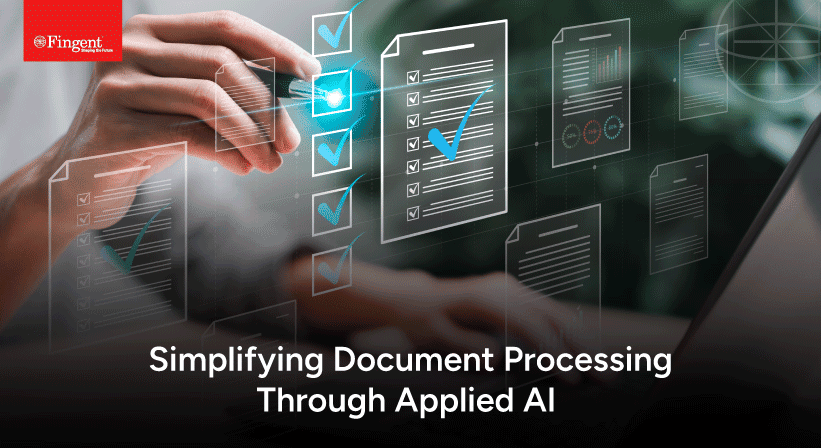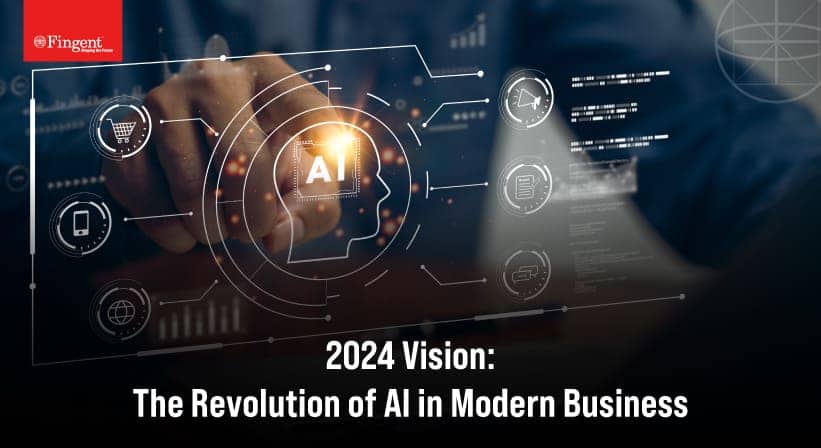How Predictive Algorithms and AI Will Rule Financial Services
Artificial Intelligence (AI), the next big thing in the technology space, is all set to unleash big scale disruptions. The potential impact is more profound in the financial sector, which lives and breathes data.
Artificial Intelligence (AI) powered “smart” machines do not just crunch data. It indulges in self-learning to solve cognitive tasks, until now the forte of the human brain. A traditional analytical engine or software robot requires someone to feed in clear set of rules set in advance. AI-endowed self-learning machines create the rules and frame the logic by itself, as it crunches through millions and millions of rows of historic data, identifying. It learns to perform the required task based on the decisions humans have made previously. AI powered algorithms also learn from mistakes, meaning the predictive analytics in spews becomes more and more accurate with every recorded transaction.
In the financial sector, such AI-powered systems delve into many years of banking, insurance, mortgages and financial trading history, apply deep learning principles, and self-construct algorithms to automate routine tasks, unlocks insights, improve decisions, mitigate risk, and prevent frauds. AI’s natural language processing system can read through regulations, reassembling words into a set of computer-understandable rules.
The CBInsights Conference on the Future of Fintech predicts a rapid pace of disruption in the financial sector, requiring incumbent stakeholders to adapt or risk being submerged in the coming tidal wave of predictive analytics. Apart from conventional tools, Artificial Intelligence-inspired technologies such as blockchains, insurance tech, robo-advising, and other latest cutting-edge innovative tools promise to take analytics to a whole new level.
The following are the potential applications of Artificial Intelligence, which would take over financial services in the near future:
- Improved efficiency through greater automation and better insights
- New models for several traditional functions, especially in stock analysis and wealth management advisory services
- Customization and personalization of financial products, leveraging the services of analytics-driven recommendation engines;
- Improved cyber-security monitoring and responsive systems, and automated fraud detection
Improved Efficiency
AI and robotics powered automated solutions are on the verge of subverting the traditional business models of banks and other financial institutions.
AI-based algorithms automate much of the routine tasks that require extensive workforce now, leading to considerable savings on overheads, accelerated processes, and overall improved efficiency. Being lean and mean is the mantra for success in today’s highly competitive environment, and AI will help financial institutions discover new meaning to lean and mean.
AI-based technology simplifies and automates a host of routine tasks related to money management processes, such as identity authentication, know-your-customer checks, sanctions list monitoring, billing fraud oversight, anti-money laundering monitoring, risk control processes, and more.
AI facilitates several tasks, such as bot messaging, document discovery and more which require extensive manual work now.
Such efficiency improvement interventions have the potential to offer huge ROI for the financial service industry. Banks adopting ROI already report about 40% increase in productivity.
New Trading Models
AI powered predictive analysis has the potential to create entirely new business models in equity, forex and other trades.
Algorithms are already in widespread use to manage risk and exposure. With AI getting better, the scope of intervention will change from refining existing models to becoming the bedrock of newer innovative models. AI-powered algorithms offer brokers and investors access to charts and trends at a much more sophisticated level than before, enabling them to chase short-lived opportunities cutting across venues, asset classes, and geographies. Trading algorithms assess the best liquidity providers during execution. The possibilities are endless.
Thomson Reuters predict algorithmic trading systems to handle 75% of the global trade volumes in the near future. Almost all hedge fund in the world already have a huge data-science team, and deploy sophisticated filters to screen investment ideas.
Tightening regulation mandating extensive record keeping and tracking of all trades, and the need for increased speed in correlating multiple variables, to keep pace with a fast paced and highly competitive environment plays into the eventual dominance of AI.
Deep Personalization and Customization
One of the innovative possibilities with AI in the financial sector is in the realm of marketing. Already, marketers are analyzing behavioral data captured from online activities in a big way, to customize and personalize offerings based on spending habits, social-demographic trends, location, and other preferences.
With AI capable of understanding human language and emotion, marketers of financial products and services would soon take personalization to a whole new level. For instance, AI-powered marketing database could suggest language that elicits certain emotional responses to advertising and email subject lines, and trigger cultural sensitivities to certain words and timing of campaigns. Biggies such as Citi and AmEx already use such tools to good effect, to fine tune their social media and marketing engagement.
Security and Fraud Prevention
Cyber-attacks have brought down many high-profile financial institutions, and continue to be a nightmare for the industry stakeholders. AI promises a fresh breath of hope.
For instance,
- AI based analytic engine capture multivariate time series patterns, to predict anomalies.
- AI based predictive analytics make explicit customer behavior, to flag potential fraud or breach in real-time
- AI can easily correlate and link multivariate transaction data, facilitating easy recovery of layers of bank documentation and data to meet regulatory policies, and establish a money trail to bust financial frauds.
- Sophisticated machine learning and algorithm that monitor market movements in real time allow regulators to prevent major accidental market movements.
Regulations influencing financial markets, such as the European Union Markets in Financial Instruments Directive II (MiFID II) push for greater automation of trades, further boost the prospects of AI in the niche.
Experts estimate AI to surpass human intelligence by 2040. However, the financial services sector need not wait that long for predictive analysis to take over and relegate human brains to a role of supporting AI functions. It nevertheless takes great skill in developing actionable apps and products that leverage AI to unlock the many possibilities on offer. Your best bet is to partner with us and leverage our highly talented and experienced skill set for the task. We are in the thick of AI inspired things, having access to the latest technology and developments, and offer you the unique value proposition of technical competency with a considerable track record in every industry to understand your specific needs and develop highly customized products.
Stay up to date on what's new

Recommended Posts

18 Apr 2024 B2B
Applied AI For Document Processing
"It's becoming increasingly clear that AI is the future, and almost everything else is a sideshow." - World-renowned computer scientist Geoff Hinton AI has taken over almost every aspect of……

10 Jan 2024 B2B
AI Trends Set to Transform Businesses in 2024
In the dynamic realm of modern business, the profound impact of artificial intelligence (AI) continues to unfold, reshaping industries and redefining conventional practices. As we step into 2024, the transformative……

26 Nov 2023 B2B
Finding Success in the Aviation Business with AI
“Aviation is the branch of engineering that is least forgiving of mistakes.” - Freeman Dyson, British-American theoretical physicist and mathematician. The truth in that statement is sobering indeed. The precision……

27 Oct 2023 B2B
Generative AI – Magnifying the Power of AI in Business
Are you sick and tired of performing the same monotonous task every day? Well, if your answer is yes, then Generative Artificial Intelligence can benefit you. Technology is evolving at……
Featured Blogs
Stay up to date on
what's new












